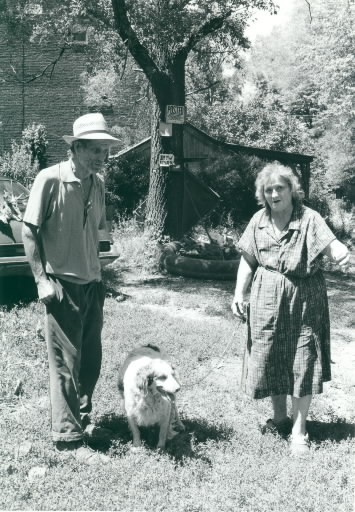4. A Farm in Ruins
Jan. 11, 2013
Chapter 1: The United States
Part 2: Three Mile Island--Ten Years After
Part 2: Three Mile Island--Ten Years After
Walking toward Paul Holowka's farm, we stopped dead in our tracks. Piled haphazardly on a wagon next to the gate were the heads of three wild deer. On closer inspection we found that the left and right antlers of the deer did not seem to match, and they looked extremely brittle.
"Hi! I see you've noticed!" our host called out as he came over to greet us. "They've all been like this recently, you know. The environment around here has been pretty screwed up lately," he added, with a resentful glance toward the steam pouring out of the nuclear power plant a couple of miles to the east.
Holowka, aged sixty-three, owns 160 acres of land on which he used to grow wheat, corn, and a variety of vegetables, besides keeping dairy and beef cattle, poultry, horses, and goats. Now he has only forty head of cattle and fifty chickens. The roof of the shed is falling down, the machinery inside rusty with lack of use. "I've had to sell off the cattle one by one to keep going," he told us frankly. Holowka has been ill since the accident at Three Mile Island ten years previously. "I've just lost all my energy—the farm's really gone to the dogs. “His unshaven face showed no sign of animation.
On the morning of the accident at Three Mile Island, Holowka and his elder sister, Marie, were busy with the milking. Suddenly there was a tremor that felt as if it had originated in the very bowels of the earth. Barely had the word earthquake left their lips when the air around them turned a bluish black and they experienced a strange taste in their mouths which left a burning sensation in their throats. Three days later, they were advised to evacuate along with other local residents, but, not wanting to abandon their livestock, they stayed on the farm. When Holowka heard the newscaster talk about possibilities of extensive damage to the environment, the true gravity of what had happened struck home. "They stopped coming round to collect milk, of course. You can't expect people to drink contaminated milk." The farm was right in the center of the contaminated area, so not only Holowka's milk but also his carefully nurtured crops had to be sold so cheaply he might as well have given them away.
The family's worries did not stop there. Five months later, Marie came down with a thyroid condition. Three years later she was found to have lung cancer as well, and she went into hospital for an operation. Holowka's other sister began to have problems with her legs, and for the last five years has been unable to walk without the aid of a stick. Holowka himself often suffers from a sore throat and is concerned that he too may have a thyroid condition. The corporation flatly denies any connection between illnesses such as the Holowkas' and the accident. Management has stated that a small quantity of radiation was released but not enough to cause cancer or have any damaging effect on the environment. "So how do they explain what's been happening here since the accident? That's what I'd like to know."
Holowka has little confidence in the corporation's assurances and went on to recount several stories of other odd incidents that had happened on the farm in the last ten years. Corn with white leaves; cattle bleeding to death; low birth rates, not to mention the illnesses of himself and his sisters. "Nothing like this happened before that damned accident over there; they can keep saying that the plant has nothing to do with it, but I don't believe them for a moment."
Holowka's distrust of the corporation has been deepened further by the announcement of plans to dispose of the huge tank of waste water stored inside the plant's compound. "When they get rid of that water, radiation is bound to be spread over the surrounding areas once again, isn't it?" he said, the vision of further ruination of his farm only too clear.








